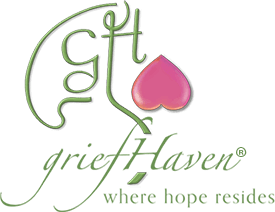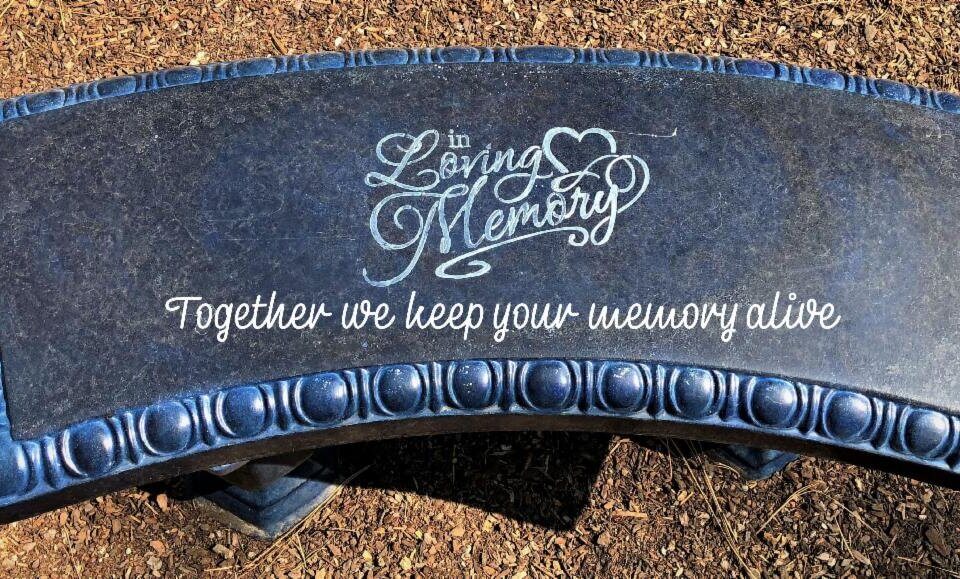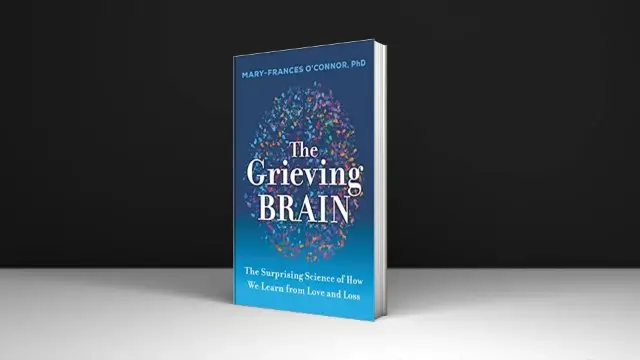
The Grieving Brain Interview: Part I and Part II 2022
June 7, 2022
Children School Shootings
September 20, 2022Share This Article
Revisiting A Family's Message
25 Years later
A Life Of Service
By Anne Roberts and Wayne Neiman

A message from Anne and Wayne
We wrote the article below more than 15 years ago about how we dealt with the loss of our son Mitchell. The article is being shared again because it remains a very accurate reflection of our grief process for the first ten years. Since that time, we have continued to progress, and we are doing well. Wayne has joined Anne in co-facilitating child loss groups for griefHaven. It is a meaningful way for both of us to help grieving parents and honor Mitchell’s legacy and memory. Of course, we still miss Mitchell every day, and yet there is much happiness in our lives. Hopefully, our experience will provide a sense of possibility for those who are suffering the pains of having lost their child.
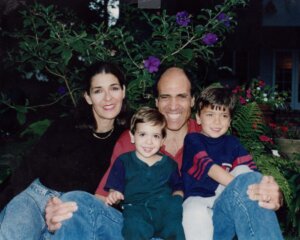
Anne, Spencer, Wayne, and Mitchell - 1994
TEN YEARS LATER
ONE FAMILY'S PERSPECTIVE
( Anne and Wayen's five-year-old son Mitchell was diagonsed with rare form of cancer. After numerous hospitilizations, he died after seven months later.)
The loss of a child is overwhelming. You go to the deepest, darkest place - a bottomless pit. It seems there is no escape; You never get better.
Ten years have passed since our son Mitchell died. While the journey is difficult, we have discovered that you can survive the tragedy, and even be happy again. This doesn't mean you forget or that life can ever be same. We can no longer say, as we often did before, " We have everthing we ever wanted." Losing a child has changed us in dramatic and permanent ways. Despite this, we have made it through the depths of despair and have discovered new ways to appreciate life.
If Ten years ago someone has said to us that we would have a happy life again, we would have thought that they did not understand the immensity of our loss. They didn't know our son Mitchell and how special he was. We couldn't imagine ever recovering from this tragedy.Much to our surprise, we have created a new and different life that includes much joy and laughter. Our deep sense of loss continues; however, we try to focus on how fortunate we were to have Mitchell in our life, even though the time was so short.
Mitchell lives in our hearts and minds every day. We keep his memory alive, talk about him often, and his photos remain displayed around the house with our other family photos. We know that he would have wanted us to be strong and not allow his loss to end the joy in our lives. Laughter was an important part of our life with Mitchell, and it remains a key element in overcoming the grief and moving on with life. Fundamental to our progress is Mitchell’s younger brother Spencer, who was just four when his brother died. Spencer truly was, and continues to be, our “joy boy." We quickly realized that being fully consumed with grief was not an option. As parents, we could not allow Spencer to lose both his only sibling and his parents at the same time.
Time and a great deal of effort are required to get to this place. Grieving cannot be rushed. It is very individual. Each of us grieves in our own way and under our own time schedule. There are no “should." No one can tell you how you’re supposed to feel, or that it’s time to move on, or when you will feel better.
Whether your child died after a long illness or suddenly, the impact is remarkably the same – it feels as if you’ve been hit by a 30-ton truck. No one warned us that grieving is so physical. It can take over your whole body. Sometimes you find it almost impossible to breathe or that your heart is about to burst. Other times the hole in your body feels bigger than yourself. You feel completely alone and isolated. You don’t know how you can go on and wonder if you really want to continue. Thoughts and visions of suicide can occur. Importantly, we decided that no matter how difficult, we would get through this.
There’s a saying that “time heals all." We don’t believe you “heal." You definitely get better, but there is no cure for the loss. This wound will be with us for the rest of our lives. Over time, the pain is less raw, occurs less often, and does not last as long. These changes do not proceed along a direct path where each day or year is better. The grieving process is a roller coaster ride with many ups and downs. Through the passage of time, life does get much better.
In the beginning, we were the parents of a child who died. Our loss defined who we were, consumed our days and impacted everything we did. It took all of our energy and strength to merely survive each minute, each hour, or each day. We often felt disconnected from life—just going through the motions. Our role as “grieving parents” significantly affected how we interacted with the world and how the world interacted with us. Some people didn’t know what to say to us for fear of saying the wrong thing. As a result, some of our “friends” just disappeared from our lives. Others were completely clueless, as they ineptly attempted to commiserate, comparing our loss of a child to their divorce or loss of a pet.
Denial played a large role in the first year. We often thought this was a bad dream—if we could wake up we would have Mitchell back. Then the ton of bricks of reality would hit us, and we would once again realize this was our life, Mitchell was gone.
We thought we would feel much better the second year, but somehow it seemed worse. The shock had worn off, and now the pain’s impact became even more intense. To complicate matters, as we felt worse, the outside world assumed we “should” be better. But the grieving did not just “get better” over that short a time. It took far longer than we ever could imagine.
As more time passed, Mitchell’s death became less overwhelming. We were doing much better, sometimes even going through whole days without crying. We became more able and willing to deal with everyday things, and even have a good time. We could complain about life’s normal, typical frustrations, similar to everyone else. Despite feeling progressively better, the most innocent event could trigger a memory. We would be back on the roller coaster, thrown into the depths of despair. The pain would feel just as raw as when Mitchell first died. Those feelings, however, occurred less frequently and faded more quickly.
As we mentioned earlier, grieving is an individual process. When life seemed so impossible, each of us chose a different path. We realized that we did not grieve the same way. Part of this relates to the fundamental differences between males and females. Most women tend to go outward in grieving, and men often go inward. For Anne, the process required communication. “Having a support system was critical for me. My closest friends called every day and listened to me repeat the same stories over and over again. I also went to a therapist and read many books about grief and the loss of a child. Knowing that I was not alone in this process was very helpful. I connected with other women who had lost a child, and we commiserated in a way that only another grieving mother could. I truly went to the abyss—I held nothing back. I knew I needed to hit bottom before I could begin to re-enter life. I also became more spiritual and began focusing on life and death issues in a way that I had never thought about before. Somehow, I ‘knew’ that Mitchell was okay. Knowing that Mitchell’s spirit continues to live provided great comfort. This helped me enormously get through the endless days and nights.”
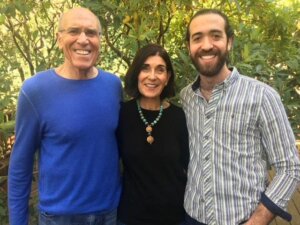
Wayne, Anne, and Spencer - Current
Wayne was a typical male in this process. “As a father, I was devastated that I couldn’t protect my child. Mitchell’s death shattered my expectation that I could keep my child safe. Despite this devastation, I did not want to seek outside help. I didn’t feel I had the energy to work with a therapist and did not want to take the time away from my family. Because we have a very strong marriage, I thought talking to Anne and going through this process together was all I could handle. I found devoting time and energy to our surviving son was critical. In addition, feeling strong has always been very important to me. It was a 'must' that I continue my regimen of daily exercise. Concentrating on my work was also helpful, although some of my most difficult times occurred when driving home from the office. At these times, alone in the car, I often found myself overcome with grief. I would yell in anger and frustration or just cry uncontrollably. When I arrived home and Anne would need to talk, my frequent reply was, ‘I’m barely holding on by my fingernails. I can’t talk about this now.’” This is only one example of the huge strain the loss of a child puts on a marriage and how important it is to allow each other to do whatever is necessary for them to grieve. This permission and acceptance was a key reason that we are still happily married.
Early on, we realized that, with Mitchell gone, we couldn’t continue the same family rituals and traditions. We had to focus on what was best for the three of us, regardless of any disappointment or upset that it caused our extended families and friends. While we had always attended a big family Thanksgiving dinner, we started a new tradition of taking a family trip each Thanksgiving. We left town for the holidays, including New Year’s, because we didn’t feel that we could celebrate as we had in the past. This was not the time to let family and friends tell us what we “should” be doing or feeling. These changes were an important step in our healing process; however, they did not have to be permanent. After six years we returned to attending family Thanksgiving dinners.
Similarly, in making day-to-day decisions, we tried not to allow ourselves to be controlled by other people’s expectations. We turned down invitations for events that we “should” go to. We left parties and functions because we felt too uncomfortable watching others who were celebrating. Being around people and trying to act happy required too much effort. We knew it was okay to go out and have fun, but often we simply could not be sociable.
As we were grieving intensely, it felt as if we would never emerge from the depths of despair. Over time, we overcame some of these overwhelming feelings. The world was no longer the stark black and gray in which we had been living. We could see colors again. We were now able to see the light at the end of the tunnel. We were still in the tunnel, but we could see a future in which we didn’t feel so bad. This allowed us to return to participating actively in life. How did this change happen? Our progress in reconstructing a happy life was based on several factors.
First, we had to change our perspective. We stopped asking “why” did this tragedy happen to us. Rather, we embraced an idea expressed by Naomi Levy in her book To Begin Again, “Where do we go from here?" This shift allowed us to focus on the things we could change. It meant looking at the loss differently and having a more positive attitude. We could appreciate what a special gift we were given—to have been Mitchell’s parents. We also began to focus on how fortunate we were. We have survived this loss with a strong marriage, a healthy son, and the support of extended family and friends. The loss made us realize more clearly how precarious life can be. As a result, we try to live in the present and not postpone plans and trips to an uncertain future. We try to create as many positive memories as possible each day because we don’t know what the future holds.
We also found that assisting others helps give meaning to our lives. Anne often counsels newly grieving moms. Only someone who has gone through this tragedy can understand and truly empathize with the experience. Even though talking about our loss can be painful and bring up difficult memories, helping other parents feel less despair or less alone during their intense grieving process gives meaning and purpose to Mitchell’s death.
Most importantly, we focus on what Mitchell would have wanted. We did not want Mitchell’s legacy to be two bitter people mourning his loss for the rest of their lives. He deserved better. This realization helped us change our priorities. We know we have grown as a result of this process. We have become better people. Life has become more meaningful, and we have greater appreciation for the life we have. This has led to a deeper compassion for others and a better understanding of what really matters.
Wherever you may be in your grieving process, know that it will get better. This will not come easily or quickly. Give yourself the permission to grieve in your own time and in your own way. Do not hesitate to seek help. This is a very lonely process.
griefHaven • 310-459-1789 • hope@griefHaven.org
Copyright © 2022 griefHaven
aka The Erika Whitmore Godwin Foundation.
All Rights Reserved.
Anne and Wayne serve as griefHaven Advisory Board members.
